Middle East coronavirus death toll goes over 50,000: Live updates
Hardest-hit nation remains Iran, which saw the region’s first major outbreak and has more than 380,000 confirmed cases.
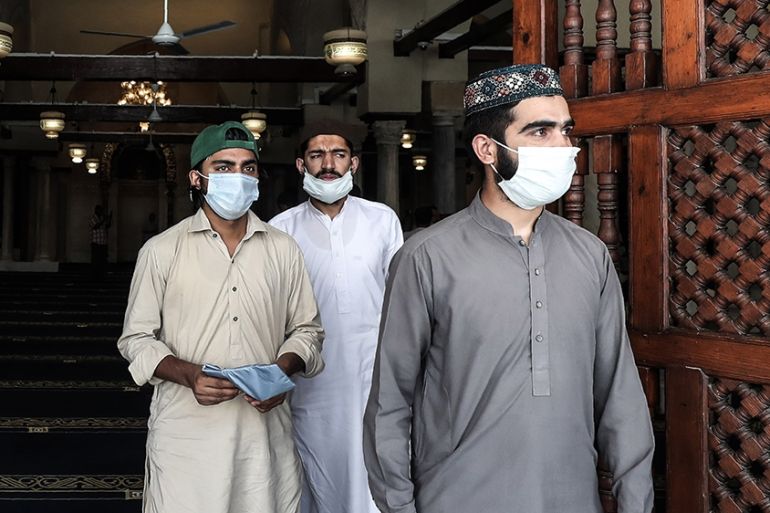
-
The death toll from the coronavirus disease in the Middle East is more than 50,000 but numbers still may be an undercount, as testing in war-torn nations like Libya and Yemen remains extremely limited.
- The United States has said it will stop paying its dues to the World Health Organization, a day after it said it would not participate in the COVID-19 Vaccine Global Access Facility (COVAX) , a global vaccine development and distribution project.
- Steroids have been confirmed to reduce the risk of death in patients suffering from severe cases of COVID-19.
- More than 26 million people around the world have been diagnosed with the coronavirus, and at least 863,028 have died, according to Johns Hopkins University. Some 17.3 million people have recovered.
Here are the latest updates:
Thursday, September 3
20:50 GMT – Spain counts more than 100,000 virus cases in 2 weeks
More than 100,000 people in Spain have tested positive for the novel coronavirus over the past two weeks, according to the ministry of health.
Keep reading
list of 4 itemsWill the US unemployment rate continue at historic lows?
Mexico’s teachers seek relief from pandemic-era spike in school robberies
‘A bad chapter’: Tracing the origins of Ecuador’s rise in gang violence
Nearly 9,000 new coronavirus infections over the past 24 hours were added to the tally that has surged to 488,513 confirmed cases.
Madrid has been home to nearly one-third of the country’s 100,155 infections over the past two weeks, reporting the worst outbreak both in terms of real numbers and per capita cases.
20:10 GMT – G20 foreign ministers discuss easing travel restrictions
G20 foreign ministers have sought international cooperation over easing travel restrictions and reopening borders, as months of coronavirus shutdowns exert a drag on the global economy.
National shutdowns of varying intensity and duration have taken a toll on livelihoods around the globe as businesses are shuttered, revenues plunge and millions are forced out of work.
“During the meeting, foreign ministers acknowledged the importance of opening borders, uniting families, and promoting measures to allow the economy to thrive,” the G20 group said in a joint statement.
19:35 GMT – Middle East coronavirus death toll surpasses 50,000
The confirmed death toll from the coronavirus passed 50,000 in the Middle, based on official numbers provided by health authorities.
The top UN official for Libya on Wednesday warned the coronavirus pandemic in the war-ravaged country appears to be “spiraling out of control”. Yemen’s Houthi rebels, who control the capital, Sanaa, and much of the north, have refused to release virus statistics.
The hardest-hit nation remains Iran, which saw the region’s first major outbreak. Over 21,900 people have died there from the virus, with over 380,000 confirmed cases and 328,000 recoveries.
The United Arab Emirates, which has embarked on a mass testing campaign, saw its highest daily number of new cases in over three months.
19:05 GMT – Israel announces partial national lockdown after coronavirus surge
Israel’s head of its pandemic task force, Ronni Gamzu, said Israel was facing a “pivotal moment” in trying to contain the spread of COVID-19, with some 3,000 new cases now reported daily in a population of nine million.
Other health experts have said political in-fighting among members of Prime Minister Benjamin Netanyahu’s coalition government has led to a slow response to a second wave of cases after a national lockdown flattened the infection curve in May.
“Please, no weddings now, no mass gatherings … anywhere,” Gamzu, his voice rising to a shout, implored on TV. “There are cities in Israel that will be put under curfew and closure in the coming week and face economic, social and personal hardship.”
18:15 GMT – France again registers over 7,000 new COVID-19 infections
France has registered more than 7,000 new coronavirus infections over 24 hours for the second time in two days, the health ministry said, just shy of a 7,578 record set on March 31, while hospitalisations for the virus also rose again.
The health ministry reported that the cumulative total of confirmed cases rose to 300,181, up by 7,157. It had reported an increase of 7,017 cases on Wednesday.
The number of people in intensive care with the disease also rose again for the fifth consecutive day, up by 18 to 464.
17:50 GMT – Norway adds Italy and Slovenia to COVID-19 quarantine list
Norway has said it will impose a 10-day quarantine on all people arriving from Italy and Slovenia from September 5 due to rising numbers of COVID-19 cases in those countries.
Restrictions will also apply to the Vatican and San Marino, but will be eased for those coming from Cyprus and six regions of Sweden and one in Denmark, the Norwegian foreign ministry said in a statement.
To try to prevent a domestic resurgence of the coronavirus, Norway quarantines all travellers from countries with more than 20 confirmed new COVID-19 cases per 100,000 population during the past two weeks.
It also advises Norwegians against travelling to those nations.
17:20 GMT – Nigerian authorities disturbed by low level of coronavirus test sample collection
Nigerian authorities are disturbed by the low level of coronavirus test sample collections, a senior government official said.
“Despite the increased diagnostic capacity and improved access to testing, the demand remains low with not enough samples being collected,” Boss Mustapha, the country’s most senior civil servant, told reporters at a meeting of a task force on the pandemic.
17:00 GMT – Migrants in Lesbos camp tested for coronavirus
Greek authorities are imposing a 14-day quarantine on the Moria migrant camp on the island of Lesbos after one man who had been living outside the official camp tested positive for the coronavirus.
The overcrowded Moria camp houses 12,714 people, well over its capacity of 2,757.
The migration ministry said on Wednesday that a 40-year-old Somali man had been granted refugee status and a residence permit to live in Greece, and had left the camp on July 17.
However, he had returned in recent days and had been living in a tent outside the camp fence. He is currently hospitalised in isolation on the island.
16:40 GMT – WHO aiming for 20 percent of Africa to get initial COVID jabs from access plan
The World Health Organization wants to secure an initial 230 million doses of any COVID-19 vaccine for Africa, officials said, while emphasising that any vaccine in development should also be tested on the continent.
The global vaccine allocation plan, called COVAX, aims to help buy and fairly distribute deliver two billion doses of approved vaccines by the end of 2021.
“This … (initial batch) will cover 20 percent of the African population, initially prioritising those who are the front line, health care workers, then expanding to cover vulnerable groups,” Richard Mihigo, the programme area manager for WHO Africa, told an online news conference.
16:15 GMT – UK records highest number of COVID-19 cases since June 4
The United Kingdom has recorded 1,735 daily confirmed cases of COVID-19, according to government data published on Thursday, up from 1,508 a day earlier and the highest since June 4.
The daily number of deaths within 28 days of testing positive for the virus was 13, the government said.
15:45 GMT – EU hopeful first vaccine doses will come by end of year
The European Union hopes it will get 30 million doses of a potential COVID-19 vaccine by the end of the year, the first batch in a deal struck with British drugmaker AstraZeneca, a European Commission official said.
Assuming one dose per person, such a first batch would cover 6-7 percent of the EU population.
The European Commission has made a $397.8m down payment to AstraZeneca to secure at least 300 million doses of its potential vaccine, with an option to buy a further 100 million doses.
“We want all the member states to have the same price but also to have the vaccine at the same time. It means that, for instance, for AstraZeneca, we will have I would say at the end of this year a certain number of doses – hopefully 30 million doses,” the official said.
15:13 GMT – South African healthcare workers protest, threaten strike
South African healthcare workers have protested against poor working conditions and urged the government to end corruption in the purchase of COVID-19 personal protective equipment.
The protesters gathered in Pretoria and Cape Town, charging that the lives of healthcare workers are endangered as some health facilities have inadequate supplies of protective equipment like surgical masks.
The union leading the demonstrations, the National Education, Health and Allied Workers’ Union, has threatened that its 200,000 public workers will go on strike on September 10 if their issues are not addressed.
Read more here.
14:40 GMT – Berlusconi’s girlfriend and two children also positive for COVID-19
Former Italian premier Silvio Berlusconi’s girlfriend and two of his five children have also tested positive for the coronavirus, Italian news reports said, a day after the 83-year-old confirmed he has COVID-19.
Partner Marta Fascina, 30, and children Luigi and Eleonora, aged 31 and 36 respectively, are self-isolating in the same villa in Arcore, near Milan, as Berlusconi, the ANSA and Adnkronos news agencies said.
Berlusconi’s relationship with Fascina, who is 53 years younger, became official earlier this year. She is a lawmaker for his conservative Forza Italia party.
13:58 GMT – Pfizer targets end of October for COVID-19 vaccine update
US drugmaker Pfizer said it should know by the end of October whether a COVID-19 vaccine it is developing is successful, and will submit it for approval immediately if that is the case.
Pfizer has enrolled 23,000 patients in vaccine tests as of Wednesday, its Chief Executive Albert Bourla said in an online briefing sponsored by drug industry group International Federation of Pharmaceuticals Manufacturers & Association.
Pfizer is in the race to come up with a vaccine with its partner, Germany’s BioNTech.
Hello, this is Linah Alsaafin taking over the blog from my colleague Umut Uras.
11:35 GMT – UK ramps up trials of 20-minute COVID-19 tests
The United Kingdom said it is investing in trials of a 20-minute COVID-19 test, with a view to rolling out widespread, systematic testing to pick up outbreaks early, amid criticism over backlogs in its current testing system.
Health minister Matt Hancock has said he hopes mass testing using faster COVID-19 tests can be rolled out towards the end of the year, adding that they are key to restoring freedoms after months of COVID-19 restrictions.
“I want to solve the problem by having the next generation tests at a radically bigger scale. You can’t do that on the current technology very easily,” he told BBC television. Asked when it would be available for everyone, he said: “Over the coming weeks and months ahead. We’re starting the rollout today.”
11:00 GMT – Pandemic review panel named, includes David Miliband
Members of an independent panel examining how the World Health Organization and countries handled the COVID-19 pandemic were named, including former Mexican President Ernesto Zedillo and David Miliband, former British foreign secretary.
Co-chairs of the panel, former New Zealand Prime Minister Helen Clark and former Liberian President Ellen Johnson Sirleaf, issued the list of the other 11 members. “We intend to learn all that we can about [the pandemic’s] early emergence, global spread, health, economic and social impacts, and how it has been controlled and mitigated,” Clark said in a statement.
11:30 GMT – Thailand reports first domestic coronavirus case in 100 days
Thailand reported its first local coronavirus transmission in more than 100 days, officials said, after a man who was recently imprisoned failed a routine test at a Bangkok jail.
The man, 37, tested positive on Wednesday during scheduled weekly testing, the Department of Corrections said in a statement, adding that he had not travelled abroad or been in close contact with a known positive case.
The man, a former nightclub DJ, has since been hospitalised and prisoners who came into contact with him have been isolated. All of Thailand’s cases in the past three months have been imported and detected in quarantine.
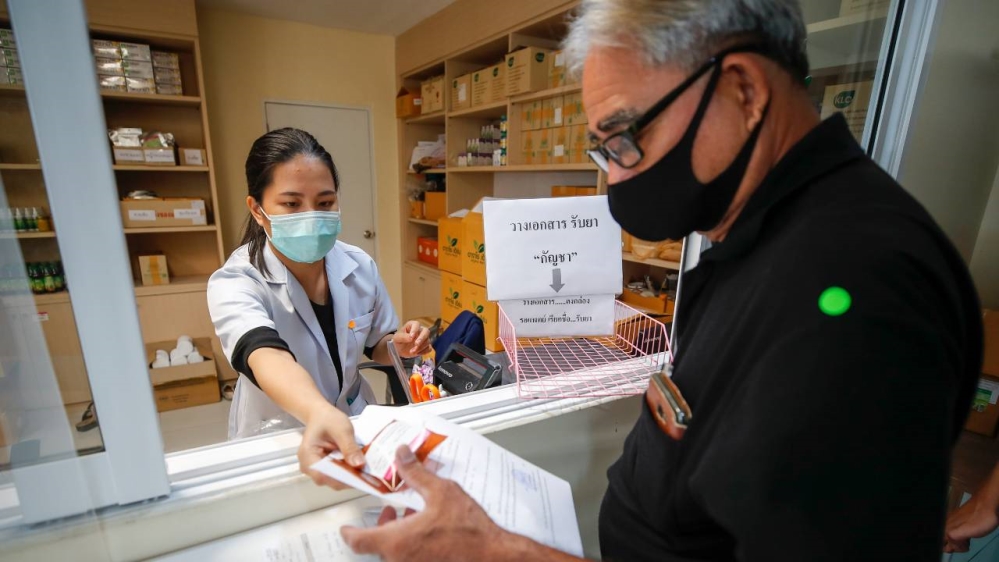
10:45 GMT – All nations should join global COVID-19 vaccine effort: Africa CDC
All countries should join hands in a global effort to procure and distribute potential vaccines against the coronavirus across the globe, the head of the Africa Centres for Disease Control and Prevention said.
The World Health Organization said 76 rich nations, not including the US, were now committed to joining a global COVID-19 vaccine allocation plan co-led by the WHO that aims to help buy and fairly distribute the shots.
“We are in this together. No country will be safe if any other country in the world still has cases of COVID,” John Nkengasong, the head of the Addis Ababa-based continental body, told an online news conference.
10:30 GMT – English tracing scheme shows weekly cases highest since May
The weekly number of positive COVID-19 cases in England in late August was the highest since the end of May, the latest data from the test and trace scheme showed.
NHS Test and Trace said 6,732 more people tested positive for COVID-19 in England between August 20 and 26 – an increase of 6 percent in positive cases compared with the previous week.
9:45 GMT – Philippines confirms 1,987 new coronavirus infections
The Department of Health of the Philippines on Thursday recorded 1,987 additional novel coronavirus infections, a new five-week low, and 65 deaths.
In a bulletin, the department said total confirmed cases have increased to 228,403, while confirmed deaths have reached 3,688, of which more than 43 percent were reported in the past 30 days.
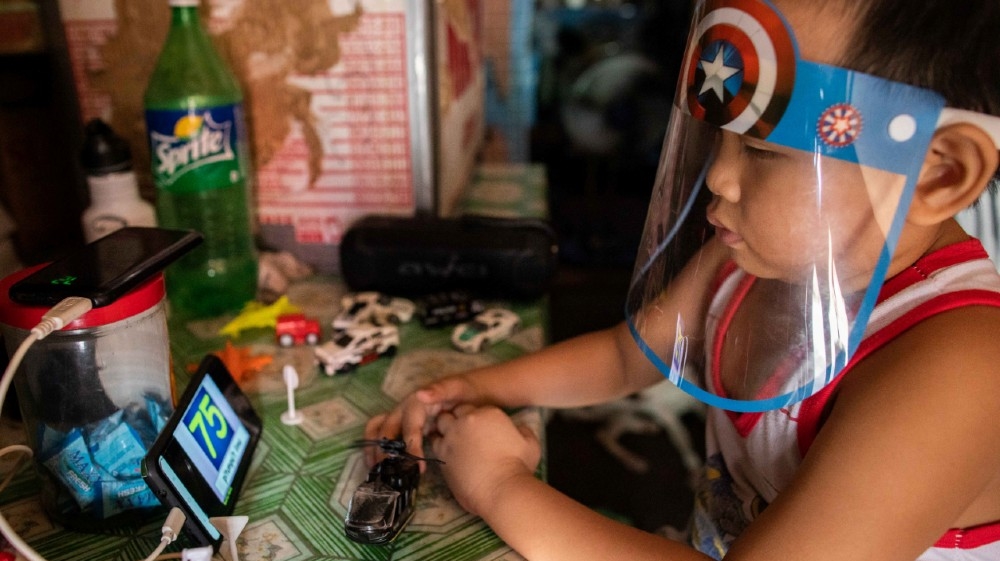
09:10 GMT – Myanmar seals off capital amid virus surge
Myanmar has imposed mandatory quarantine and coronavirus tests for visitors to its capital city after the country reported dozens more infections on Wednesday and leader Aung San Suu Kyi warned of a “disaster for the country”.
Anyone entering the capital, Naypyidaw, where the government is based, will be quarantined, tested, and allowed entry only if their result is negative, according to a government order published on Facebook.
People coming from the country’s worst-hit areas will be quarantined in a facility for at least seven days, said the order by the Naypyidaw Council, while others will be allowed to leave earlier if they test negative.
08:55 GMT – S Korea scrambles to add hospital beds amid COVID-19 resurgence
South Korea, scrambling to control the second wave of COVID-19, on Thursday promised to double its critical-care hospital beds amid a severe shortage, highlighting the strain of the pandemic on even well-equipped countries.
The spike in serious cases, as older people make up an increasing proportion of patients amid a broader resurgence, marks a sharp turn for a country that was seen as successful in crushing one of the worst early outbreaks of the new coronavirus outside China.
Fewer than 10 intensive-care beds were available in the greater Seoul area, a metropolis of 26 million people, as of Tuesday, health authorities said. Officials do not give daily numbers, which can fluctuate widely.
08:30 GMT – Indonesia reports new record in daily virus infections
Indonesia reported 3,622 new coronavirus infections, a record high in daily cases, and 134 new deaths, data from the country’s COVID-19 task force showed.
The number of new daily deaths reported was the highest since July 22. That brought the latest COVID-19 tally in Southeast Asia’s biggest country to 184,268 infections and 7,750 deaths.
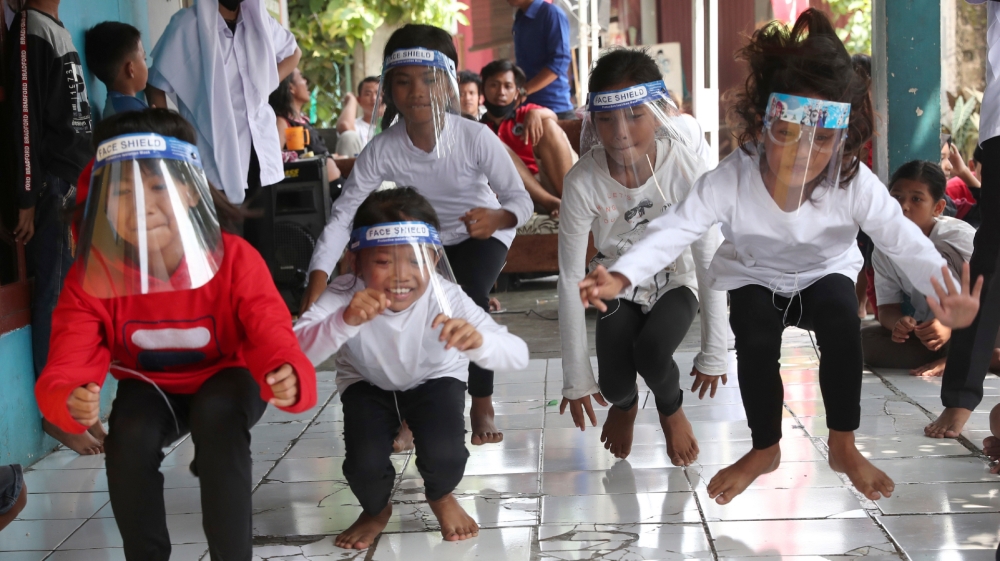
07:50 GMT – Russia registers nearly 5,000 new coronavirus cases
Russia reported 4,995 new coronavirus cases, bringing its national tally to 1,009,995, the fourth-largest in the world.
Russia’s coronavirus task force said 114 people had died over the last 24 hours, pushing the official death toll to 17,528.
07:30 GMT – Czechs report highest daily number of cases
The Czech Republic’s daily number of new coronavirus cases rose to 650, the highest since the pandemic reached the country in March, Health Ministry data showed on Thursday.
With that number, the overall count of cases rose to 25,773 in the country of 10.7 million.
7:00 GMT – Sanofi and GSK launch trial for protein-based vaccine
French drugmaker Sanofi and its British peer GSK have started a clinical trial for a protein-based COVID-19 vaccine candidate.
Sanofi and GSK said they had started the phase one/two trial for their adjuvant COVID-19 vaccine, which they hope to make available across the world. The vaccine candidate uses the same recombinant protein-based technology as one of Sanofi’s seasonal influenza vaccines with GSK’s established pandemic adjuvant technology.
The companies said they expected the first results on the vaccine by early December 2020, and if the data turned out to be positive, they would plan to request regulatory approval for the product in the first half of 2021.
6:30 GMT – Russia resumes international flights with Egypt, UAE and Maldives
Russia has resumed international flights with Egypt, the United Arab Emirates and the Maldives, a government order showed.
The government said it had authorised three flights a week to Cairo, as well as two flights a week to Dubai and to the Maldives’s Velana International Airport.

5:45 GMT – China offers virus vaccine candidates to aviation industry workers
China has offered experimental coronavirus vaccines to aviation industry workers, according to a regulatory notice seen by the Reuters news agency, in a push to inoculate high-risk groups to prevent a possible resurgence as economies reopen.
China, which has four COVID-19 vaccines in the final stage of human trials, launched the emergency use vaccine programme in July, hoping to boost the immunity of groups such as border inspectors or medical industry workers.
Front-line workers at Chinese airlines, airports, China National Aviation Fuel Group and TravelSky Technology Limited will be provided with a candidate vaccine on a voluntary basis, the notice from China’s aviation regulator shows. The Civil Aviation Administration of China has asked these sectors and firms to compile a list of personal information of employees willing to take the vaccine, the notice adds.
Hello, this is Usaid Siddiqui in Doha taking over from my colleague Kate Mayberry.
05:05 GMT – UNHCR: Pandemic threatens progress in refugee schooling
The UN Refugee Agency says the coronavirus threatens progress made in improving education for child refugees.
A just-published report based on data from 12 countries hosting more than half the world’s refugee children, found that primary education enrolment increased by two percent in 2019.
But while gross enrolment was 77 percent at the primary level, it fell to only 31 percent in secondary, and just three percent in higher education.
The UNHCR noted girls had less access to education than boys, and that the coronavirus threatened to undo the gains that had been made.
“Before the pandemic, a refugee child was twice as likely to be out of school as a non-refugee child,” the agency said in a statement. This is set to worsen – many may not have opportunities to resume their studies due to school closures, difficulties affording fees, uniforms or books, lack of access to technologies or because they are being required to work to support their families.”
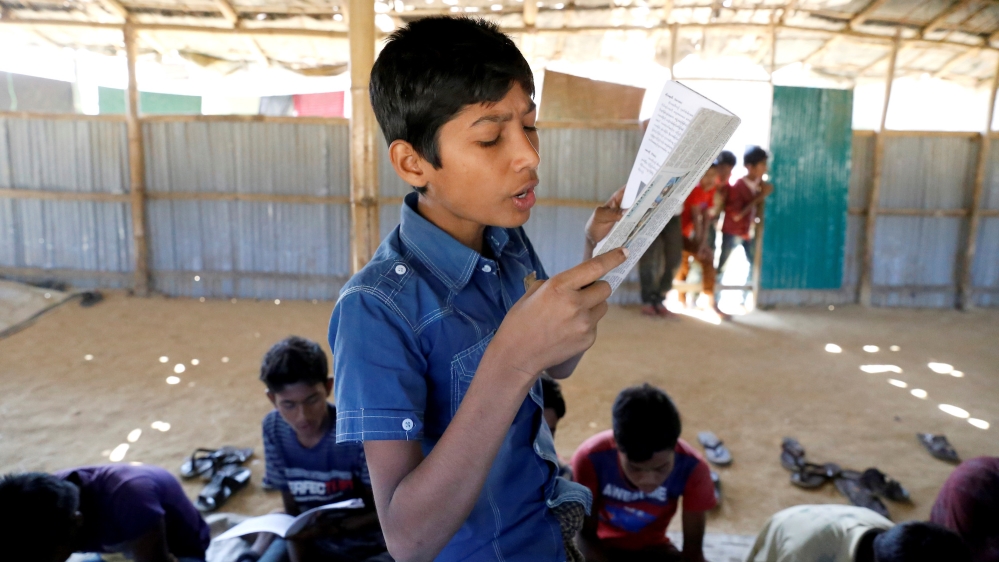
04:45 GMT – India reports record daily jump in cases
India has reported a record jump in cases of coronavirus.
The health ministry confirmed 83,883 cases on Thursday, bringing the total to 3.85 million.
India – the world’s third worst-affected country after the United States and Brazil, has been reporting the world’s highest daily caseload every day for nearly a month.
A further 1,043 people died from the disease, the health ministry said, bringing the death toll to 67,376.
03:20 GMT – First direct international flight lands in Beijing
An Air China flight from Phnom Penh was the first international flight to land in Beijing after direct flights from eight countries were allowed to resume.
As well as Cambodia, direct flights will be allowed from Greece, Denmark, Thailand, Austria and Canada. Passengers must have tested negative for COVID-19 before they board and complete a 14-day government-run quarantine on arrival.
China reported 11 new cases of coronavirus on Thursday, all of them imported.
Air China Flight CA746 (Phnom Penh-Beijing) landed at Beijing Capital International Airport at 6:57 am BJT on Thursday. This is the first direct international flight to Beijing after the city gradually resumed direct inbound flights from September 3. pic.twitter.com/aghIDpkPyB
— People's Daily, China (@PDChina) September 3, 2020
02:55 GMT – Brazil cases near four million
Brazil’s health ministry says it has confirmed a further 46,934 cases of coronavirus, bringing the country’s total to 3,997,685.
Some 123,780 people have died from the disease in Brazil; the worst outbreak after the US.
02:20 GMT – Victoria’s new confirmed cases return to triple digits
The state of Victoria, in Australia’s southeast, has reported 113 new cases of coronavirus and an additional 15 deaths.
The state government is due to outline plans on Sunday to relax strict curbs imposed to slow the spread of the virus.
It is the first triple-digit rise in new cases in four days.
02:00 GMT – Dwayne Johnson says he and family recovered from coronavirus
Hollywood star Dwayne Johnson says he and his family all tested positive for COVID-19, but have now recovered.
In a video posted to Instagram, the 48-year-old star of films including The Mummy Returns and Jumanji: Welcome to the Jungle, said the disease was “one of the most challenging and difficult things” they had been through as a family.
He urged others to wear a mask and be strict about social distancing even at home gatherings.
01:45 GMT – Steroids can help save lives in severe cases of COVID-19
The WHO has released new guidance on the use of corticosteroid drugs after studies found their use could cut death rates among seriously ill patients by 20 percent.
The world health agency advises their use in people only with severe cases of the disease.
Cortocosteroids include the drug dexamethasone, which was found to be an effective treatment in June in findings from the Oxford University-led RECOVERY trial, and triggered the WHO investigation.
The guidance also recommends the use of hydrocortisone for the sickest patients.
🆕 guideline on use of dexamethasone & other corticosteroids advises:
✅ for oral or intravenous usage in treatment of patients with severe & critical #COVID19
❌ against usage in treatment of non-severe casesMore: https://t.co/eWHzRrYKvO
— World Health Organization (WHO) (@WHO) September 2, 2020
01:30 GMT – New cases dip to two-week low in South Korea
South Korea has reported 195 new cases of coronavirus. That’s the lowest since August 17, according to Yonhap News Agency.
While there are signs the spike that began last month is easing – thanks to stricter distancing rules – a record number of patients are in critical condition.
There are now 154 people in this category, the highest since South Korea reported its first case of the disease in late January.
00:00 GMT – CDC tells US states to prepare for vaccine by Nov 1
Robert Redfield, the head of the US Centers for Disease Control and Prevention, has written to US states urging them to prepare for a potential coronavirus vaccine by November 1, two days before the country goes to the polls to choose its next president.
The federal government has set up a deal with McKesson Corp, a wholesaler, but needs permits from individual states in order to distribute any vaccine.
Redfield wrote in his August 27 letter that the normal time required to obtain the permits was a “significant barrier to the success of this public program” and said the CDC was requesting that states expedite the process and consider waiving requirements that would “prevent these facilities from becoming fully operational by Nov 1, 2020”.
A number of vaccines are currently in phase three clinical trials, which involve tens of thousands of people with half given the vaccine and the rest a placebo. It normally takes months to assess the results.
The US Food and Drug Administration (FDA), which faces mounting criticism that it is bowing to political pressure from US President Donald Trump, has suggested it might give the vaccine emergency approval before the end of the trials.
|
|
23:30 GMT (Wednesday) – US moves to withdraw WHO funding
The Trump administration says it will not pay some $62m it owes the World Health Organization (WHO) in membership fees.
The decision comes a day after the US turned its back on COVAX, a global vaccine development and distribution project the agency is leading.
The US formally made its withdrawal from the WHO in July, but the process takes a year and the US is supposed to continue to pay its dues during that time.
You can read more on the US’s latest move against the WHO here.

23:00 GMT – Former Italian PM Silvio Berlusconi diagnosed with coronavirus
Silvio Berlusconi, who was Italian prime minister four times, has been diagnosed with coronavirus.
The 83-year-old is in isolation at home in northern Italy.
—-
Hello and welcome to Al Jazeera’s continuing coverage of the coronavirus pandemic. I’m Kate Mayberry in Kuala Lumpur.
You can read all the updates from yesterday (September 2) here.
All nations should join global COVID-19 vaccine effort – Africa CDC(Adds details)
NAIROBI, Sept 3 (Reuters) – All countries should join hands in a global effort to procure and distribute potential vaccines against the coronavirus across the globe, the head of the Africa Centres for Disease Control and Prevention said on Thursday.
The World Health Organisation (WHO) said 76 rich nations were now committed to joining a global COVID-19 vaccine allocation plan co-led by the WHO that aims to help buy and fairly distribute the shots.
The United States said on Tuesday it would not join the effort, called COVAX, due to President Donald Trump’s administration’s objection to WHO involvement, a move described by some critics as “disappointing”.
“We are in this together. No country will be safe if any other country in the world still has cases of COVID,” John Nkengasong, the head of the Addis Ababa-based continental body, told an online news conference.